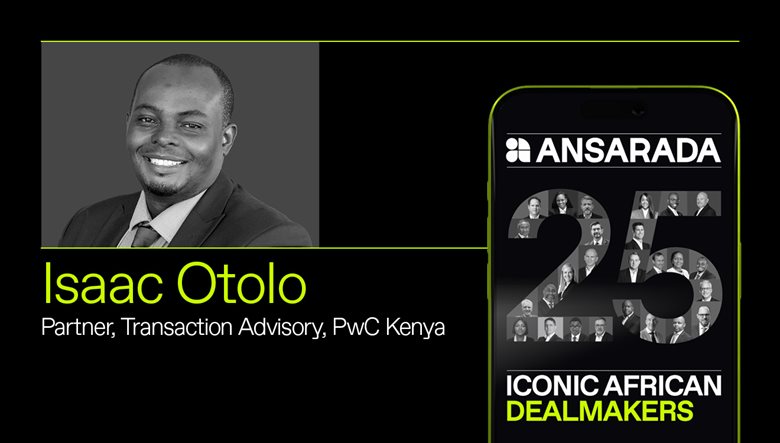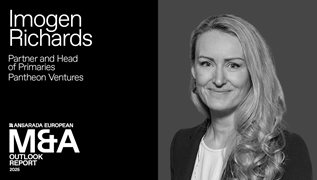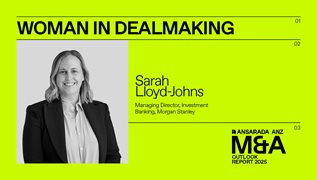Isaac Otolo: The long view on infrastructure, impact, and M&A in East Africa
With nearly two decades of experience, Isaac has spearheaded transformative projects such as the Kenya Petroleum Master Plan and conducted due diligence on significant infrastructure and privatization initiatives.
By AnsaradaThu Apr 17 2025Mergers and acquisitions, Due diligence and dealmaking, Advisors

Isaac Otolo is a seasoned veteran in Africa’s corporate finance and M&A landscape. With nearly two decades of experience, Isaac has spearheaded transformative projects such as the Kenya Petroleum Master Plan and conducted due diligence on significant infrastructure and privatization initiatives. As part of the celebration of 25 years of dealmakers, Isaac shares insights into his journey, career-defining deals, and the evolving future of M&A in East Africa.
What inspired you to pursue a career in corporate finance and transaction advisory?
My career journey began with a passion for applied mathematics in finance. Initially, I pursued actuarial science but switched to mathematics with management sciences during university. After graduation, I sought to integrate this passion into Kenya’s emerging finance market, which was still relatively nascent at the time.
I pursued a master’s degree in finance, which opened doors into the professional services world. Starting in assurance, I transitioned into corporate finance advisory, joining PwC in 2009. Over the years, I’ve had the privilege of working across the entire deal cycle and supporting transactions in markets spanning from Ethiopia to Zambia. The regional diversity of deals has kept my passion alive and my expertise sharp.
What core values or principles guide you when navigating the complexities of M&A in East Africa?
The unique dynamics of East Africa demand that we look beyond the numbers. Strategic thinking and understanding local nuances are critical, especially in sectors like infrastructure, which often directly impact the public.
Key considerations include public acceptance of assets, demand feasibility, and climate resilience—ensuring projects remain viable decades into the future. For example, assessing the long-term viability of hydro assets requires analysing hydrology maps spanning 30 years or more. Similarly, renewable energy projects must account for rapidly evolving technology.
While Africa often faces perceptions of political and economic risk, the reality is that assets in the region perform well, and default rates are lower than expected. Bringing a multifaceted perspective and structuring deals that align with both beneficiaries and investors are essential principles I uphold.
Can you share an example of a particularly challenging deal and the lessons you learned?
One of the biggest lessons I’ve learned is the importance of patience and resilience, particularly in infrastructure projects. It’s not uncommon for a project to have a 10-year gestation period, during which risks, costs, contracts, and political climates can evolve significantly.
A notable challenge has been dealing with currency devaluation. Reflecting on financial models I prepared 10–15 years ago, I’ve been surprised by how accurately exchange rate projections aligned within a 5–10% margin of error. This reinforces the importance of robust, data-driven modelling and the value of long-term foresight in structuring deals.
Of all the deals you’ve worked on, which ones have been the most career-defining for you?
Two deals stand out. The first is the Kenya Petroleum Master Plan, a comprehensive two-year study that mapped the country’s supply, demand, and distribution of petroleum resources. It shaped policy direction and was an incredible learning experience.
The second is the Kenya Pipeline Company’s acquisition of the Mombasa refinery, where we reimagined its future beyond refining. Additionally, facilitating Heineken’s entry into Ethiopia over a decade ago was particularly rewarding—it was the largest private-sector FDI deal in Ethiopia at the time. These experiences have been instrumental in shaping my career and the evolution of the region’s corporate finance landscape.
What key trends have you observed in East Africa’s M&A landscape over the past two decades?
The M&A landscape has evolved significantly. In the mid-2000s, IPOs such as KenGen and Safaricom were major drivers of activity. By 2010, private equity became a dominant force, shifting the focus from public capital markets to private funding.
Even during the COVID-19 pandemic, deal activity remained surprisingly resilient. Despite recent economic shocks and high global interest rates dampening growth, the region’s growth potential, stable economies, and strong rule of law continue to attract investors.
How do M&A deals contribute to socioeconomic development in East Africa, particularly with a focus on ESG?
ESG considerations have become integral to deal-making, particularly in infrastructure and private equity. Today, deals emphasize job creation, gender impacts, minority inclusion, and dignity for beneficiaries.
Development finance institutions have driven these priorities, but they’re now standard practice across various funding sources. Ensuring that projects are inclusive and sustainable enhances their impact on communities while meeting investor expectations.
Looking ahead, which sectors do you believe will drive deal‑making in East Africa?
Financial services, particularly insurance and banking, will see significant activity. Kenya’s recent increase in minimum capital requirements will likely spur consolidation and capital-raising efforts.
Renewable energy and infrastructure are also poised for growth, with innovative financing mechanisms attracting private capital. These sectors align with the region’s socioeconomic priorities, making them key drivers of future deals.
How do you maintain work-life balance in such a demanding industry?
It’s a challenge, but setting clear boundaries and fostering respect for them within your team is essential. Honest conversations with family and friends about career demands help manage expectations.
Virtual working has also been transformative, offering flexibility while requiring discipline to maintain balance. Being deliberate about how you allocate your time is key to sustaining both personal and professional commitments.


